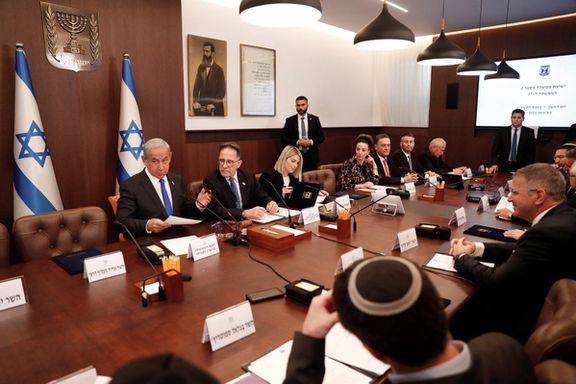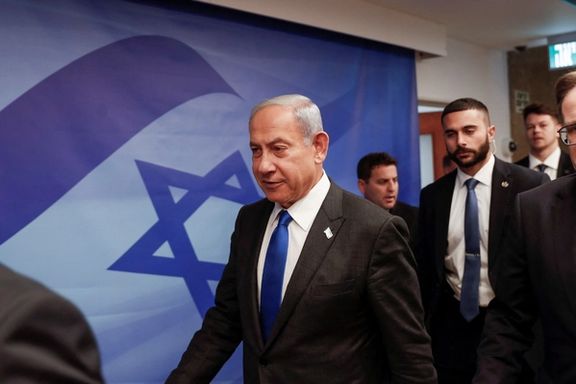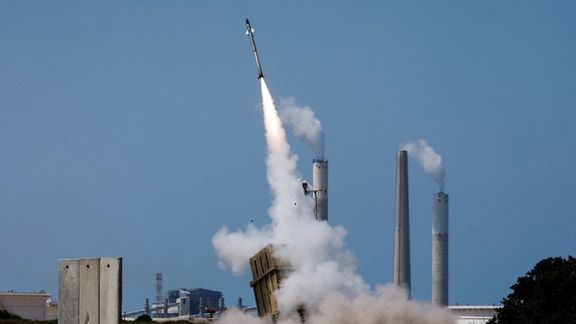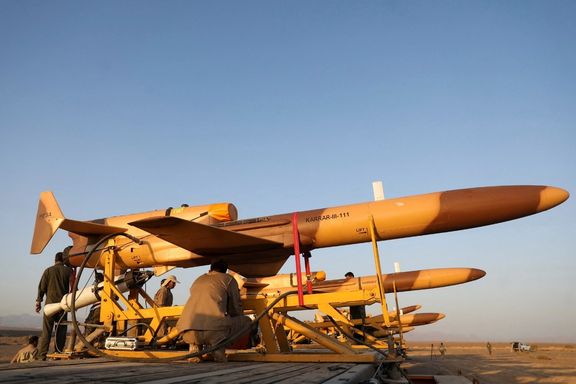Israeli Intelligence Analysts Assess The Iranian Threat - Report

Senior Israeli intelligence analysts have spoken about the in-depth research its dedicated units are doing in assessing the threat from Iran.

Senior Israeli intelligence analysts have spoken about the in-depth research its dedicated units are doing in assessing the threat from Iran.
In an article in Israeli newspaper Maariv, four officials revealed the country’s focus on Iran’s internal divide, its economic woes, its nuclear program and its foreign policy implications.
The four experts from the Iran branch of the AMAN unit, the Israel Defence Forces’ intelligence division, spoke about the turning point of 2015’s nuclear deal, which emboldened the regime to expand its influence across the region, not least, in Syria.
However, by 2018, under the Trump administration, everything changed when a raft of sanctions came down hard on the regime, with support and pressure from Israeli Prime Minister Benjamin Netanyahu, and Iran was made an international pariah state. Rather than stem the tide, this only hastened the race to arm, said the intel chiefs.

Aligning its proxy militia Hezbollah with President Assad's fight in Syria against opposition elements, an alliance to which the Russians also joined, Iran’s net has only grown wider. It has led to a tit for tat shadow war in Syria which has become a battleground between Iran and Israel, and even drawn in US forces.
This becomes more complex as was seen last week, when threats grow ever closer to Israel’s borders, with rockets raining down on Israel from Gaza, all with the guiding hand of Tehran.
But much more than only the nuclear threat, the Iran branch of the intelligence unit analyzes Iran’s internal affairs, from the protests to its economic crisis, all of which play a role in better understanding a country whose regime pledges to destroy the Jewish state but is more concerned with internal threats.
The unit claims that roughly 80 percent of the Iranian public does not support the regime, a figure which few could question in the light of mass protests since September, part of its bi-annual assessments on the domestic situation.
The internal strife facing Iran is a huge focus of the Iran unit, reaffirming the belief that the regime’s power is waning. "This protest expresses deep trends that exist in the Iranian public of moving away from the regime's values and a dramatic decrease in trust in it,” one officer said.
However while they say it is the most significant event in recent history, set to influence decision making in the years to come, the protest still lacks leadership and an alternative political system to the regime.
"It is impossible to separate the Iranian nuclear issue from the internal protest in the country", explained one of the officers. "There are very limited forums of people who make decisions in Iran, and they do so on many issues. When an Iranian decision-maker has to decide on a certain issue, he also has to think about many other things that are not necessarily related to each other."
Its research has found several elements that influence the decision-making of the leadership of the Revolutionary Guards. In order or priority, the first is the internal situation in the country and regime’s stability, then there is the economic situation, security, industrial strength and finally, its place on the world stage.
There is no doubt that its nuclear program has helped Iran leverage its international might, the focus of the foreign branch of the Iran unit, concentrated on the leverage Iran utilizes from its nuclear power.
Recent diplomatic rapprochement with Saudi Arabia and the United Arab Emirates only compound the fear Iran is sending rippling through the region. This has in turn, alarmed the security establishment in Israel, admits the intelligence team.
“Iran's relations with significant countries have strengthened and its nuclear program is at its most advanced point ever. It manages to leverage it in the diplomatic arena as well," senior security officials explained with concern.
Iran knows the US has no plans to launch an attack of any kind and the diplomatic crisis under the Biden administration only plays into the Iranians’ hands, yet further emboldening the regime. In its softly-softly approach, hoping to revive the JCPOA nuclear deal, Biden has only given Iran the green light.

As is clear, Iran is nearing the upper end of enrichment to 90-percent and AMAN’s experts say even a return to the nuclear deal cannot change this.
"In our opinion, Iran does not seek to develop nuclear weapons in the immediate term," said a senior officer. "And even if they reach 90% enrichment now, then even once they decide to develop a bomb and assuming no one prevents them from doing so, it will take them between two and three years." Even from reaching fissile material, there is some way to go to turning that into an airworthy missile.
"Iran understands that the development of nuclear weapons is a very dangerous issue, and no one in Tehran wants to take a step that they will regret,” explained one official.
“We currently define Iran as a nuclear threshold country. They mainly conduct a policy of trial and error during their enrichment, every time we are taking another step in the plan and are waiting to see how the world reacts. Diplomatic ties with Europe, for example, are very important for the Iranians." Even Iran’s new bosom buddies Russia and China have no interest in Iran having nuclear weapons in their hands, AMAN’s team admits.
While much recent focus has looked at the Iranian presence in Syria, it does not pose as much of a threat as that of its role in Iraq, says AMAN’s analysts. "Iran wants to keep Iraq as close as possible," explains one Major in the team. "The Iranians are successful in the diplomatic arena vis-à-vis Iraq, they have a pro-Iranian government there and the goal in Tehran is to perpetuate the situation as it is. Iran still has dozens of affiliates in Iraq, which include thousands of people. This is a force that Iran has actively supported for several years and invests hundreds of millions of dollars in it annually."

From an intelligence point of view, the immediate danger from Iraq is the hundreds of armed UAVs that are already stationed there and could be sent to Israel in the event of a conflict, made all the more difficult for Israel as its hands are tied by complicated military limitations, mainly due to the caution being exerted in the area by the US.
Iran would relish the idea of a weakening relationship between Israel and the US, seen recently since Netanyahu’s proposed judicial reforms and proposals to bring in more orthodox religious laws across the country. Protests have rocked Israel since the right-wing coalition took hold in January and Iran loves to see this as the sign of the state’s imminent collapse, rather than its standing firm in its democratic values.
Israel makes no secret of the fact Iran is the Jewish state’s biggest threat, an honor once held by its proxy, Hamas, which controls the Gaza Strip. However, the team in AMAN is aware that before Iran, comes the threat much closer to home, Hezbollah, an entity which was born of the desire to exterminate Israel. Neither Israel nor Iran seems keen to take the conflict into the arena, but for Hezbollah, that is another question.
“Today we are preparing much more for a possible attack on Iran, and are making much more offensive and defensive military preparations in the Iranian context,” one official said, but this really is a last resort in a game which could have horrific ripple effects for the whole region.